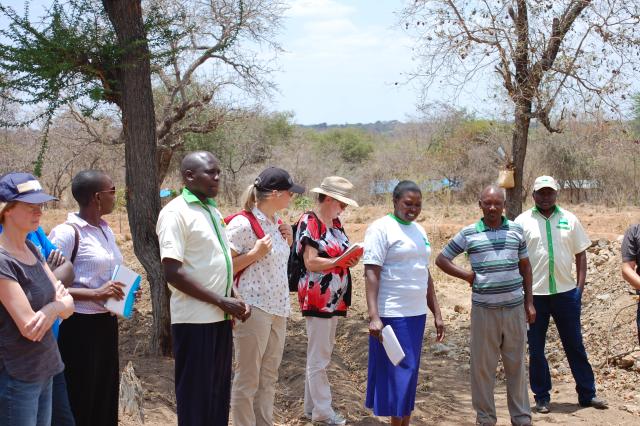A Canadian Foodgrains Bank delegate to Kenya is reminded of how we are all connected, as are the issues we care about.

Canadian Foodgrains Bank board members visit a farm in Kenya.
Credit: The Canadian Foodgrains Bank
Published On: October 16, 2019
I was only a girl when I engaged with my first justice issue: women's rights. And that led me to a life-long commitment to justice thinking and acting. I was excited when I was invited, as a board member, to participate in a Canadian Foodgrains Bank delegation to Kenya to see how well one of our conservation agriculture projects are supporting women, men, and their families to become more food secure. The project spans rural areas of Ethiopia, Kenya, and Tanzania, but we centred our trip around Nairobi, Kenya. It was a whirlwind trip—there and back within a week—in September 2019.
In the rural areas we visited, women were the farmers. They fit farming in among their other responsibilities, such as homemaking, childcare, and fetching water. They farm small plots, and their success determines whether there will be any food at all for their families. The project involved teaching them ways to produce crops and improve the soil, even as drought threatened annually. In Kathonzweni, they had not seen rain since the previous December.
One farmer, Damaris, was proud to show us her farm, where thin green stalks still survived in the otherwise dry and dusty soil. The rains would soon be coming, and she was ready to capture the run-off and hold moisture in the ground by mulching. Her husband trailed our delegation, smiling as her translated words impressed us visitors. Later, we sat in a circle under a large tree—the only patch of green in the yard—with dozens of other project participants. There were a few men among the sea of women, a couple with their babies.
Blog Theme